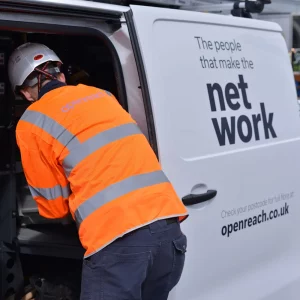Home » UK ISP News Archive » Daily Archives: August 26, 2025 (6 Posts Found)
Sponsored Links
You are viewing a August 26, 2025 news and article archive where older items are stored for readers to access and view. This is done to keep the systems running smoothly and prevents the front page from becoming too cluttered.
Search ISP News
Search ISP Listings
Search ISP Reviews
ISP News Archives for August 26, 2025
26th Aug 2025 (5 Comments)
26th Aug 2025 (25 Comments)
Telecoms and broadband giant BT has suffered another setback in its 10-year project, which aimed to convert a further 2,000 of their legacy payphones and kiosks – across more than 200 UK towns and cities – into smart Street Hubs (here). Preston Council rejected a couple of proposed deployments over concerns about rising “street clutter“.
26th Aug 2025 (6 Comments)
Internet provider Hey! Broadband, which offers services to homes in various areas covered by F&W Networks (Fibre and Wireless) alternative gigabit speed full fibre lines (mostly across the South East of England), have today announced that their customer based has surpassed 40,000 (up from 25,000 a year ago).
Advertisement
26th Aug 2025 (0 Comments)
Researchers working out of Ulster University in Northern Ireland (UK) have harnessed AI (Artificial Intelligence) in order to develop a new type of Massive Multiple-Input Multiple-Output (ma-MIMO) technology. The team say this could be used to make future 6G (IMT-2030) based mobile broadband networks “faster, smarter, and far more energy-efficient“.
26th Aug 2025 (2 Comments)
The LSBUD (Line Search Before You Dig) organisation, which provides an online asset search facility to UK civil engineering firms for underground pipes and cables, has published their Digging Up Britain 2025 report and revealed that telecoms (broadband, mobile etc.) remains the “most active industry” when it comes to searching before digging (37.5% of all searches). But this was down from 39% last year.
26th Aug 2025 (12 Comments)
Some customers of Virgin Media’s (O2) broadband service have been struggling, often for several weeks now, to regain access to their email accounts – those belonging to secondary account holders. The issue began after the ISP made a change to their ID system that seemed to lock related users out with a “FORBIDDEN” message.
Cheapest Big ISPs for 100Mbps+
Community Fibre £19.00
100Mbps (100Mbps up)
Vodafone £22.00
150Mbps (27 - 150Mbps up)
Plusnet £22.99
145Mbps (30Mbps up)
Virgin Media £23.99
264Mbps (25Mbps up)
Latest UK ISP News
Promotion
The Top 15 Category Tags
- FTTP (6927)
- BT (3924)
- Politics (3126)
- Business (2830)
- Openreach (2708)
- Building Digital UK (2540)
- Mobile Broadband (2535)
- Statistics (2165)
- FTTC (2155)
- 4G (2137)
- Virgin Media (2073)
- Ofcom Regulation (1804)
- 5G (1791)
- Fibre Optic (1619)
- Wireless Internet (1615)
New Forum Topics
By: The Wee Bear
By: bon
By: gameinn
Promotion
Helpful ISP Guides and Tips
Latest Interviews
Sponsored
Copyright © 1999 to Present - ISPreview.co.uk - All Rights Reserved - Terms , Privacy and Cookie Policy , Links , Website Rules , Contact









































